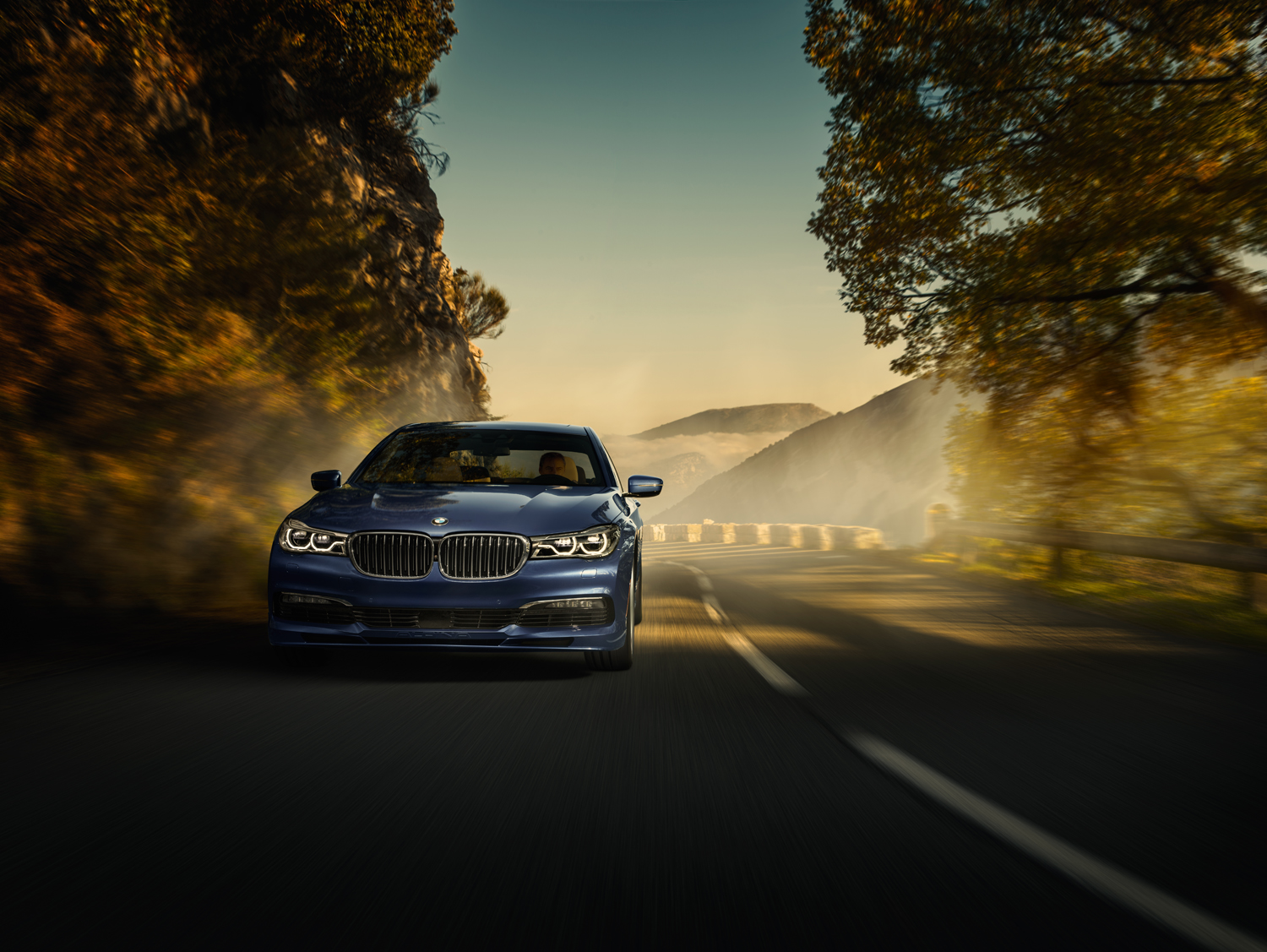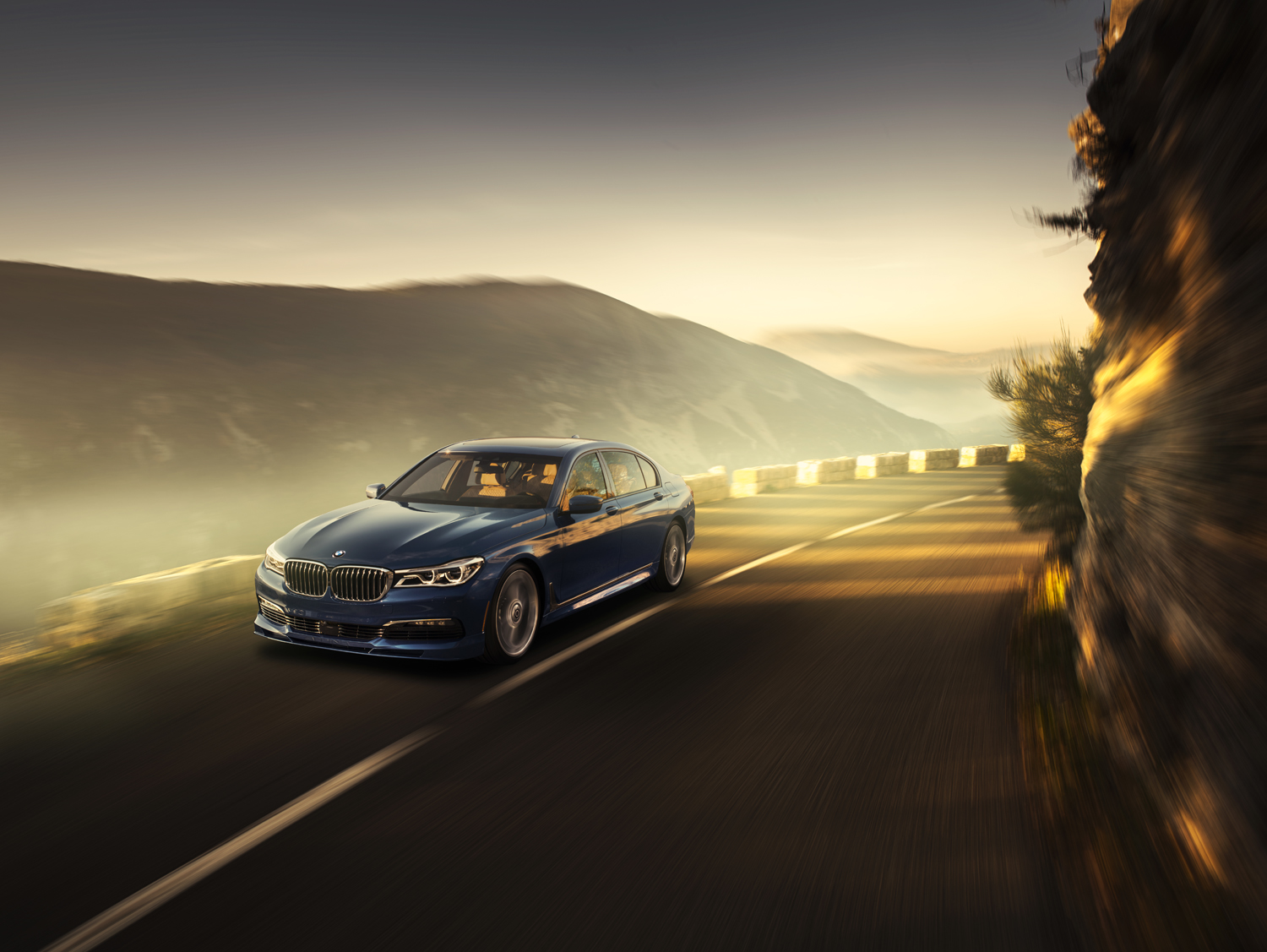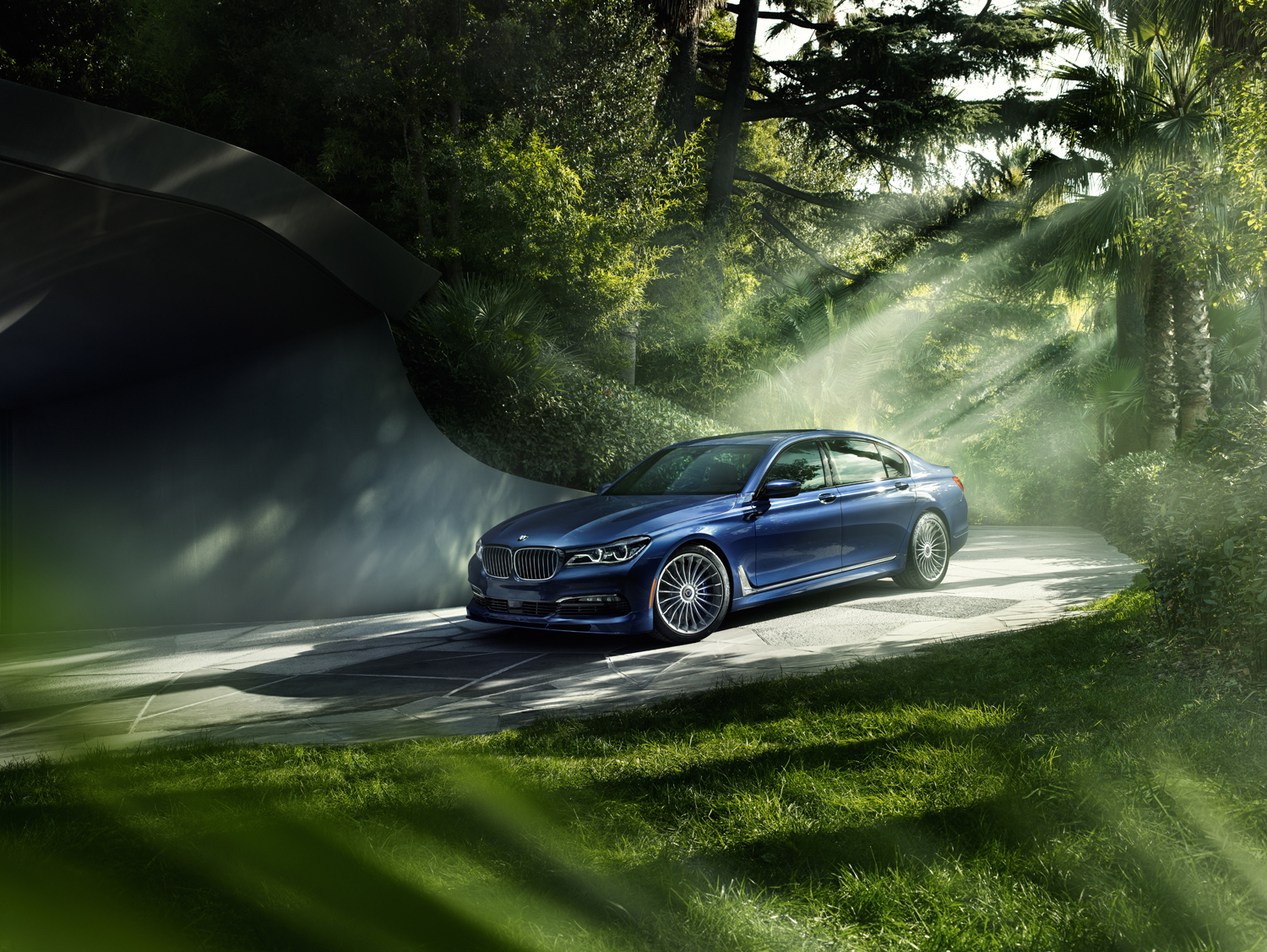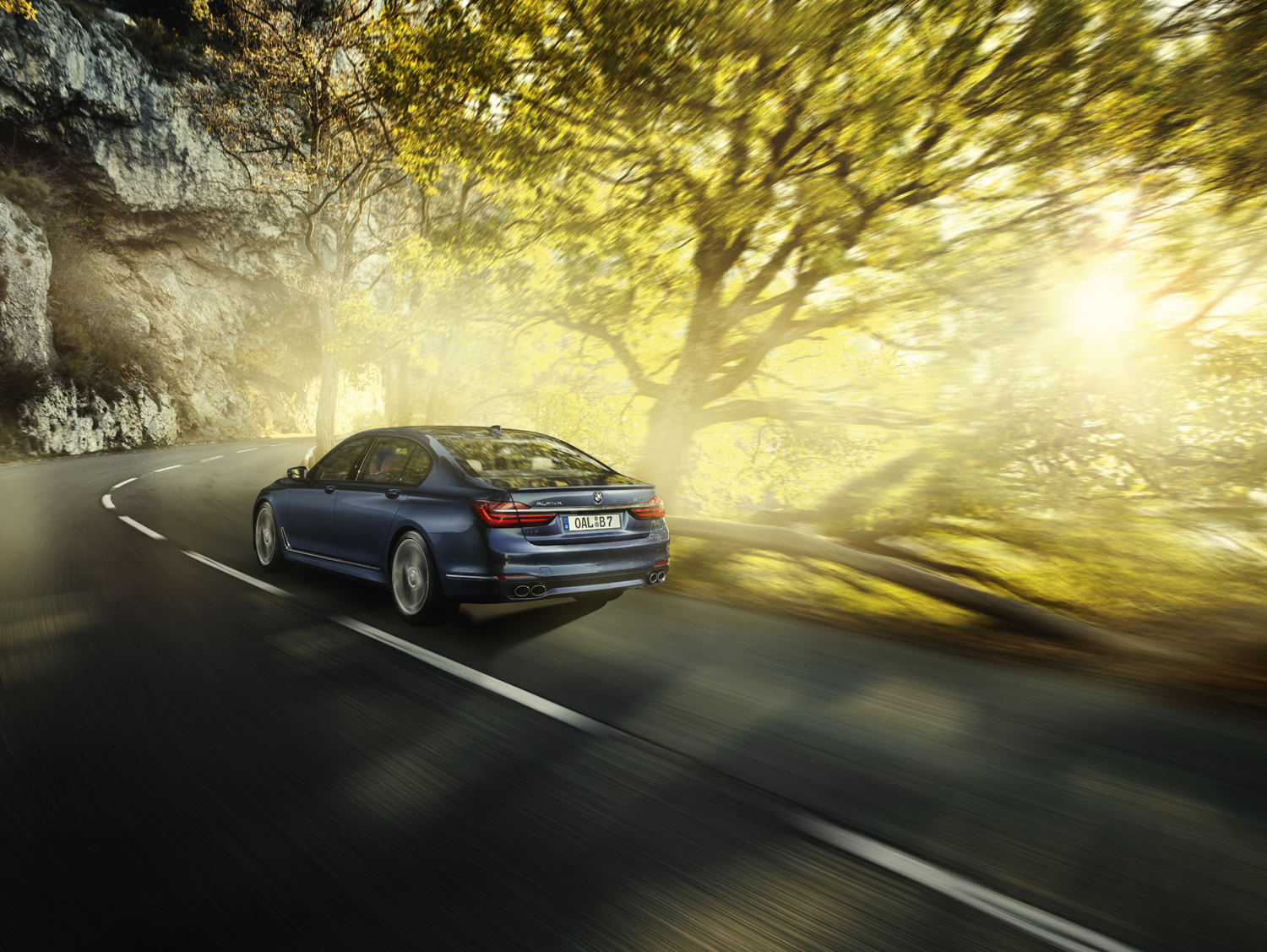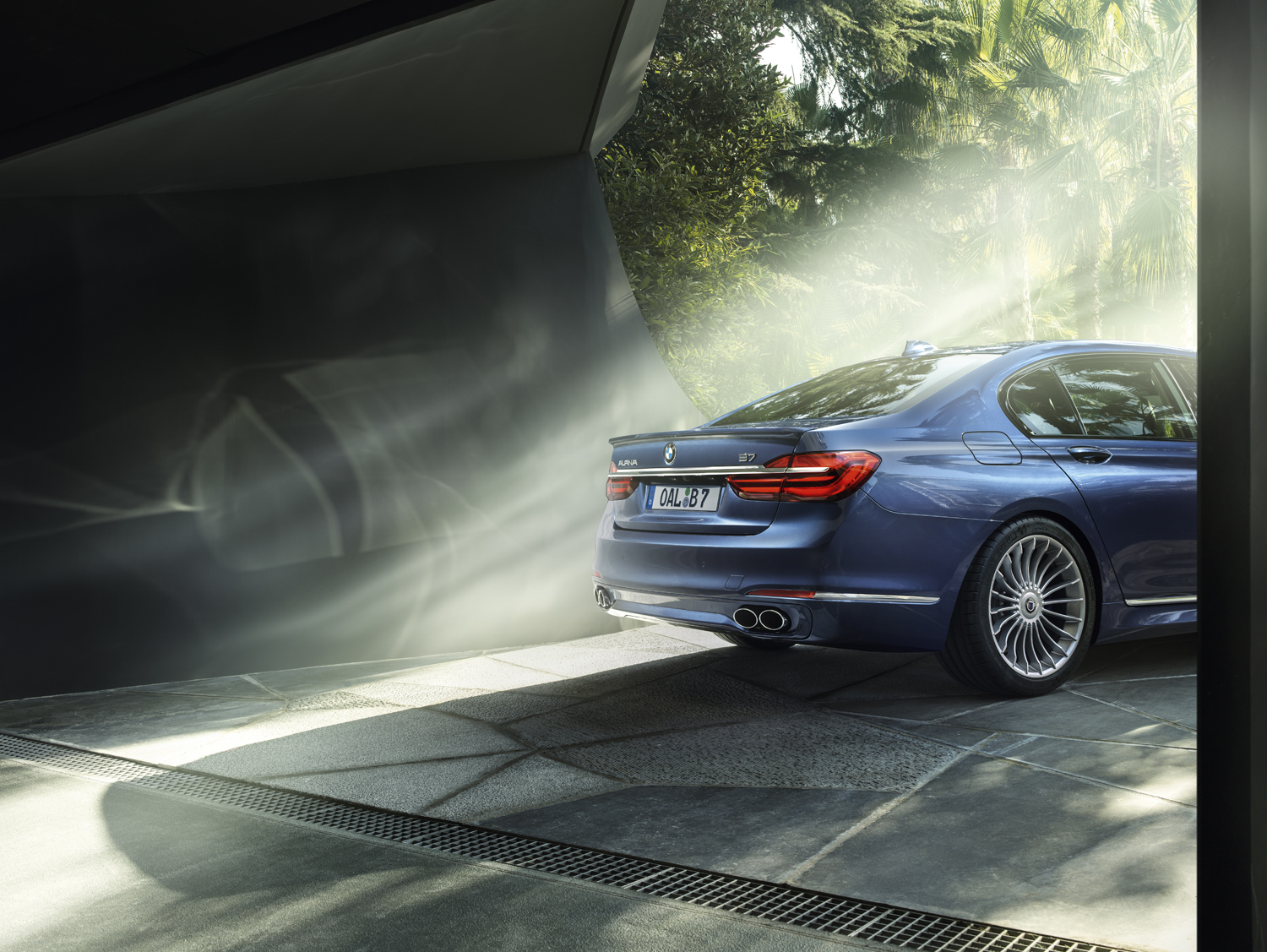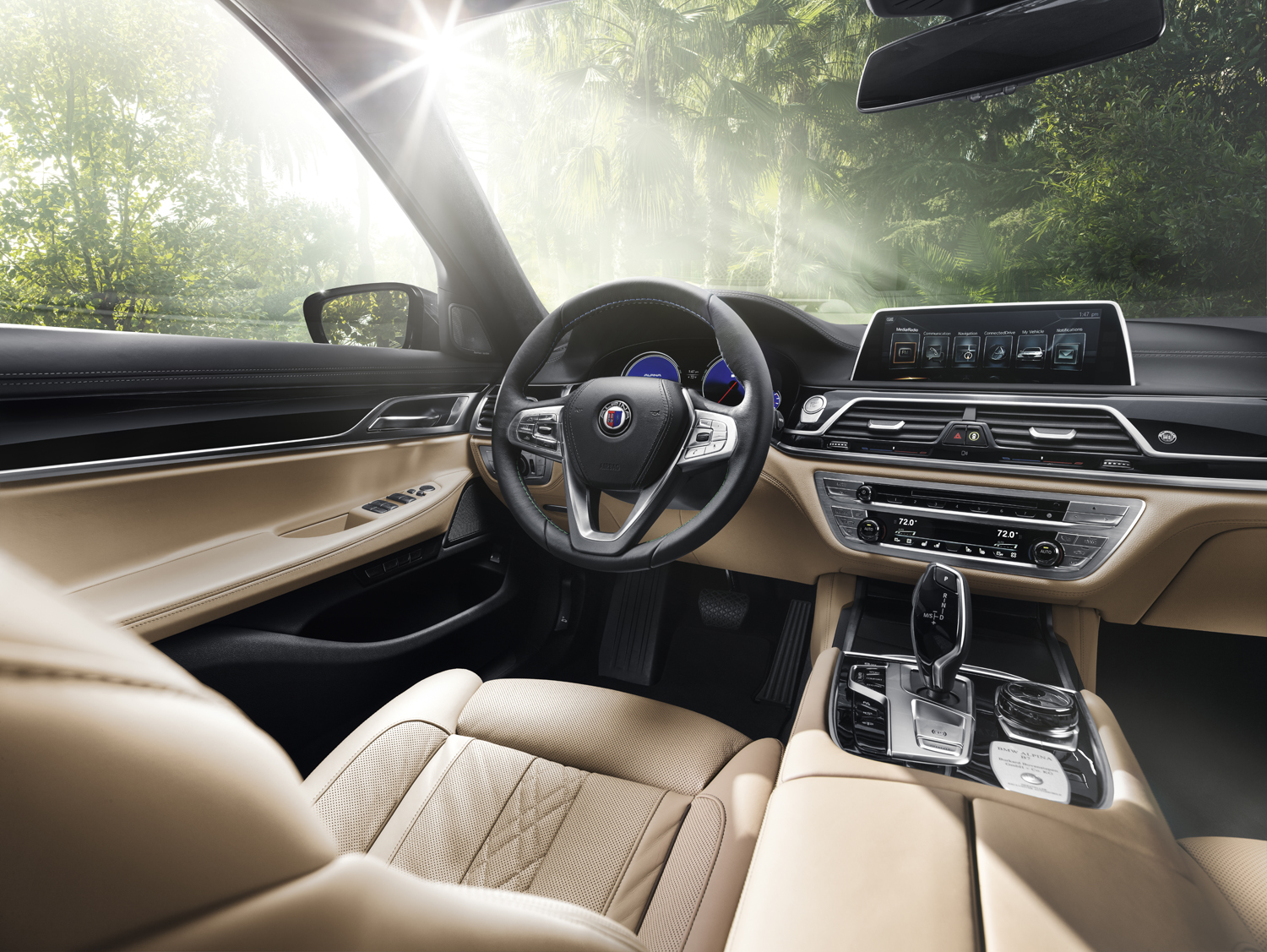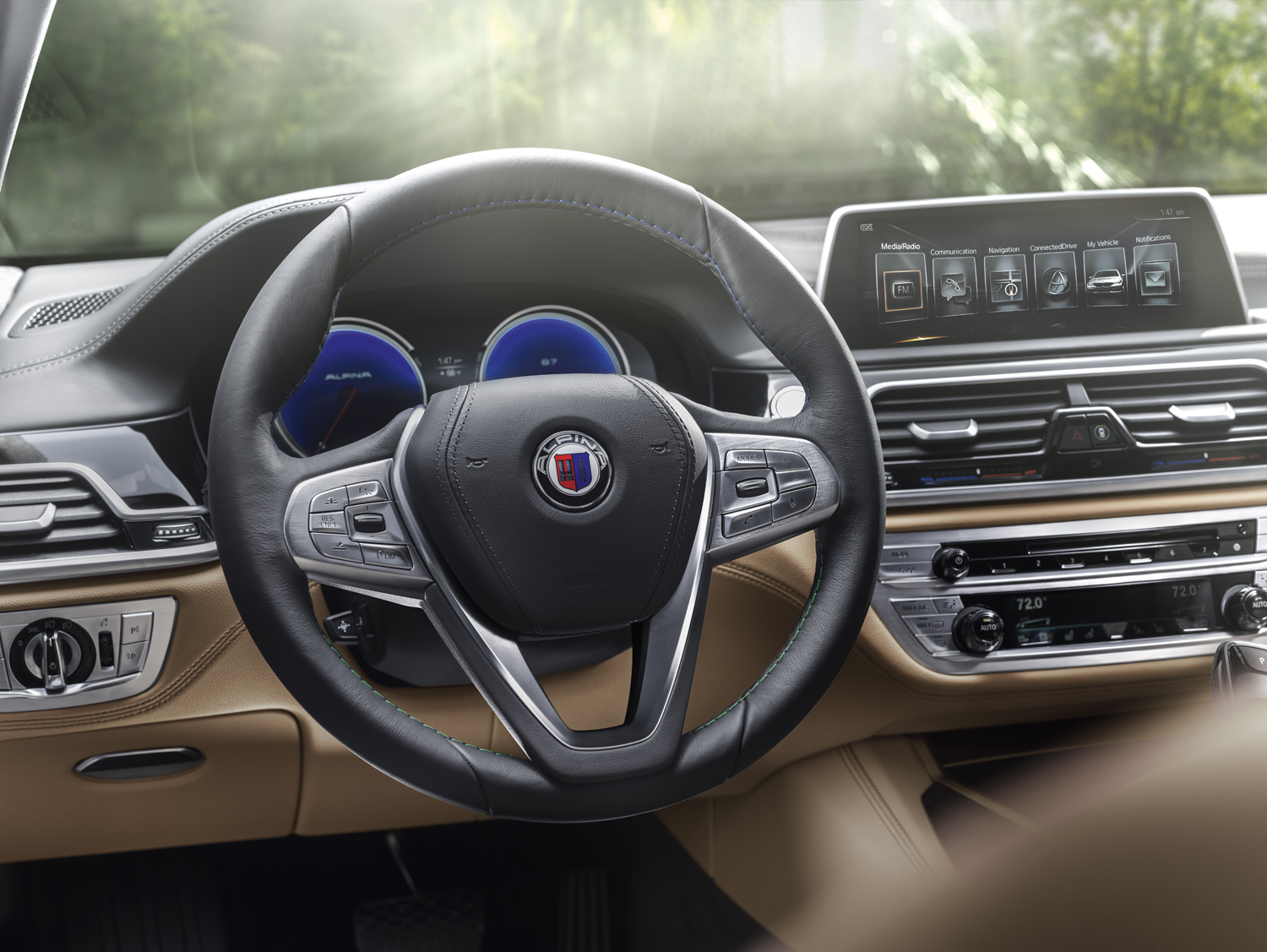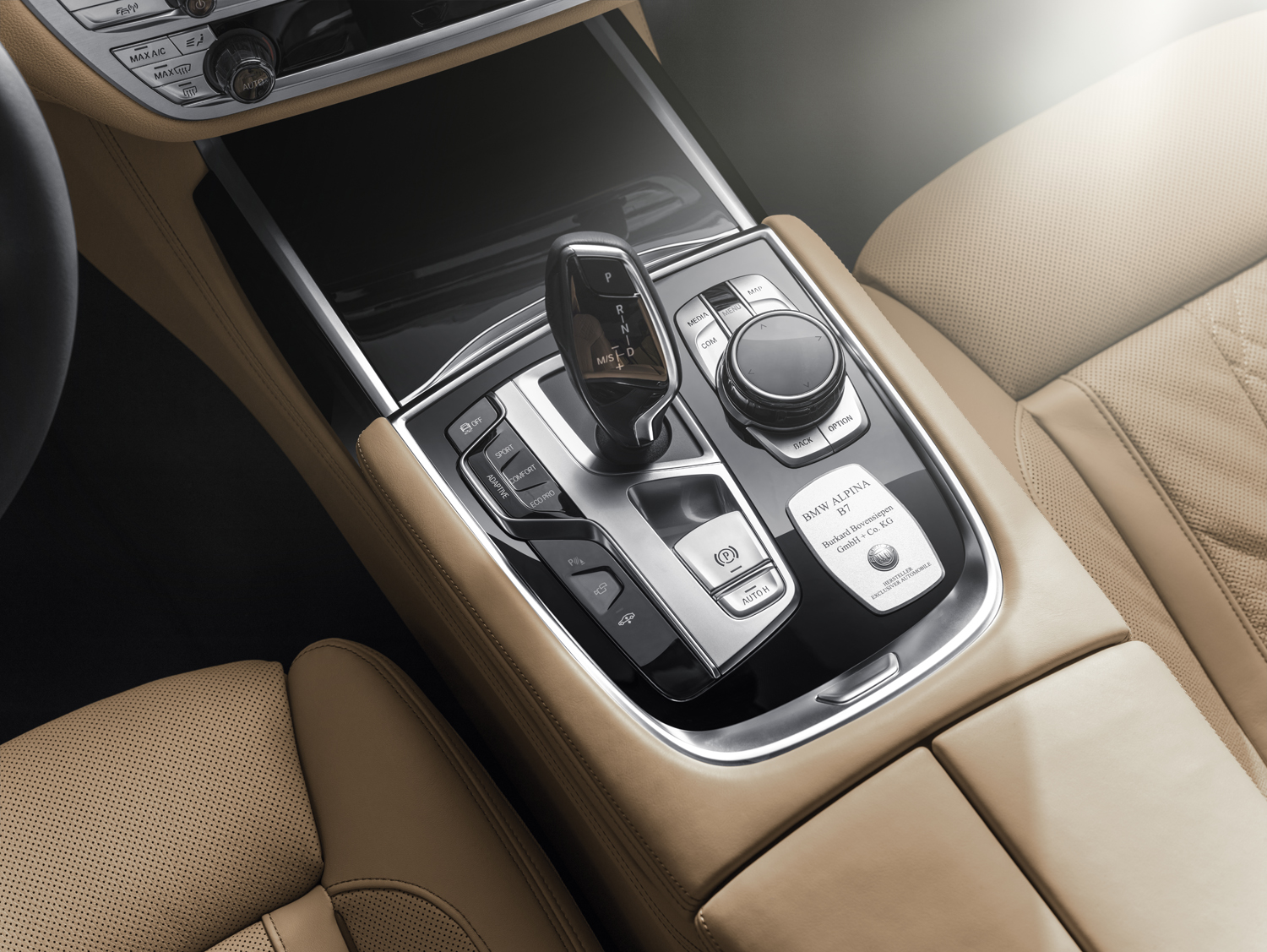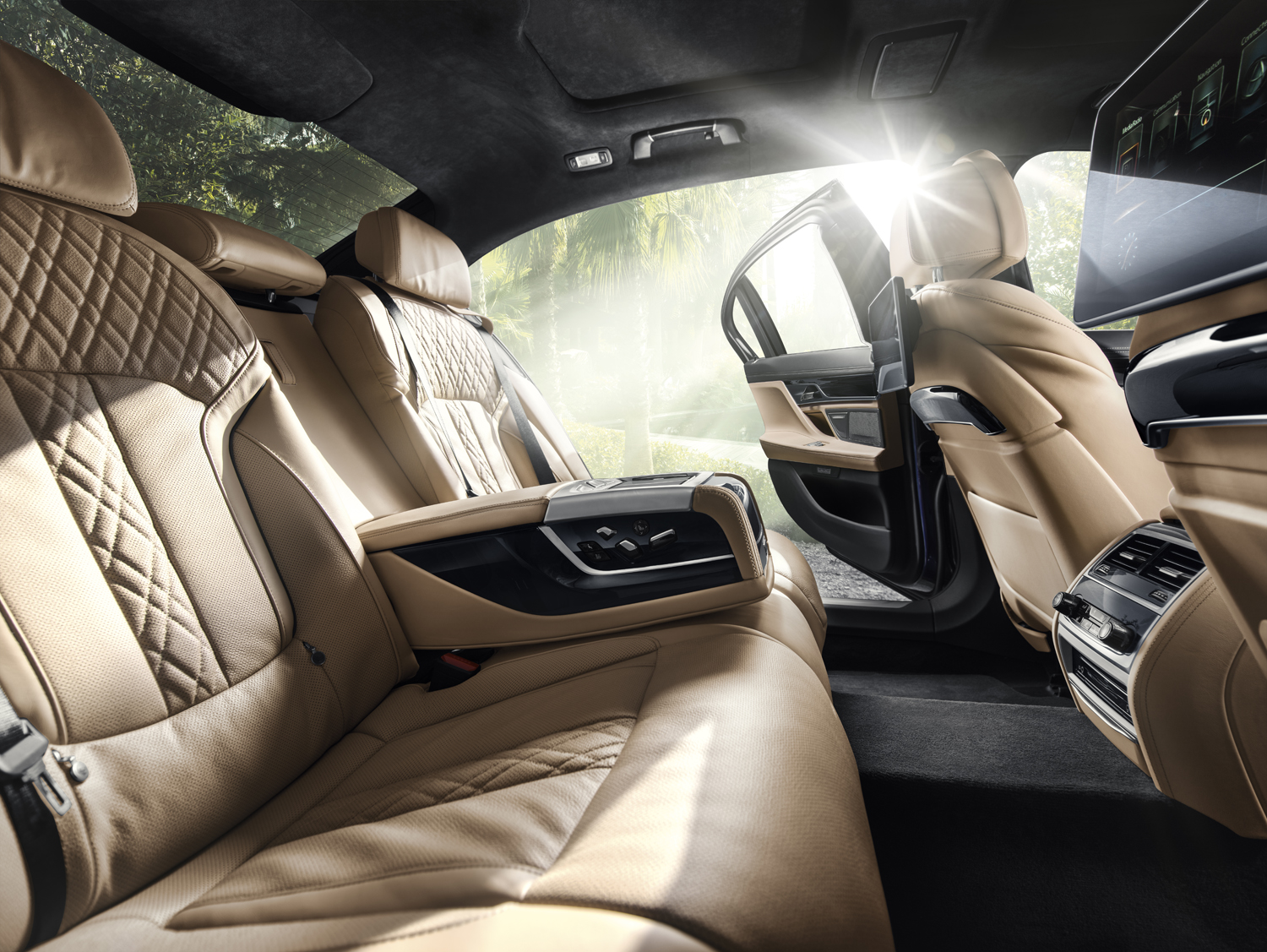BMW doesn’t see much of a market for a performance-oriented, M-badged version of its 7 Series flagship. German BMW tuner Alpina begs to differ, and the company has introduced the next generation of the track-honed B7 Biturbo in Geneva.
The next B7 Biturbo retains the outgoing model’s wolf-in-sheep’s-clothing appearance. Alpina has refrained from fitting the 7 Series with huge spoilers and massive air dams, and instead settled for a body kit that adds a slightly deeper front bumper with a splitter, side skirts, and a discreet spoiler bolted to the trunk lid. The sedan rides on the 20-spoke alloy wheels that have characterized Alpina-tuned BMWs for decades, and it sits slightly lower than a stock 7.
A twin-turbocharged 4.4-liter V8 engine is mounted between the B7’s long fenders. It’s an evolution of the 750i’s eight-cylinder that has been tweaked in-house with high-performance components such as Mahle pistons and NGK spark plugs to develop 600 horsepower from 5,760 to 6,250 rpm and 590 pound-feet of torque from 3,000 rpm. U.S.-spec cars ship with an eight-speed automatic transmission and a sport-tuned all-wheel drive system, while Euro-spec models come standard with rear-wheel drive. Our version reaches 60 mph from a stop in an impressive 3.6 seconds — 0.4 seconds faster than the model sold in Europe — and it goes on to a top speed of 193 mph.
Alpina has markedly improved handling by making performance-oriented modifications to the 7’s adjustable air suspension, and to the advanced four-wheel steering system, a technology which turns the rear wheels in the opposite direction as the front wheels at low speeds and in the same direction at high speeds. Upgraded four-piston calipers on both axles keep the prodigious amount of power in check.
BMW has made it clear it’s intent on reviving the Alpina name in North America, and the B7 is scheduled to land in the car maker’s showrooms nationwide in September. Pricing information hasn’t been published yet, but it’s safe to assume the super-sedan will be accompanied by a six-digit price tag.
